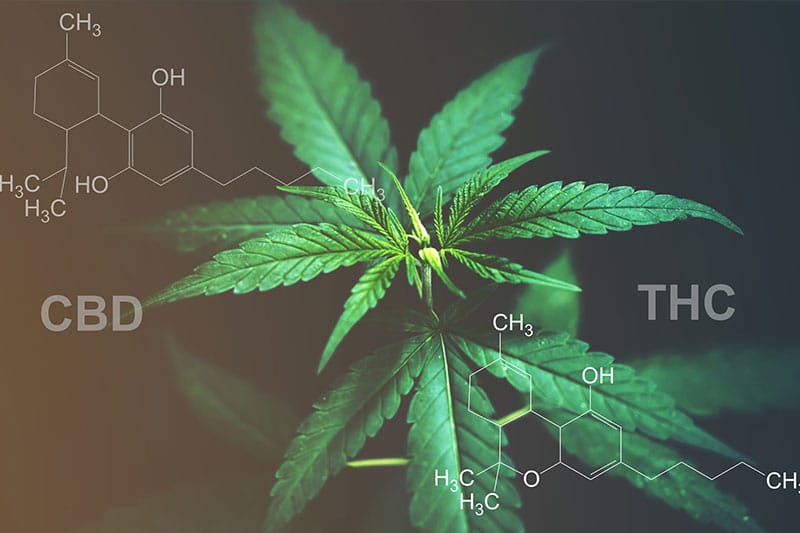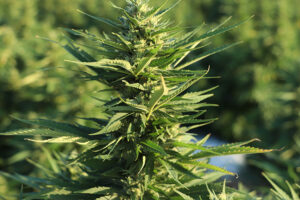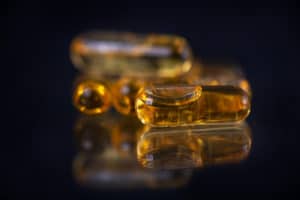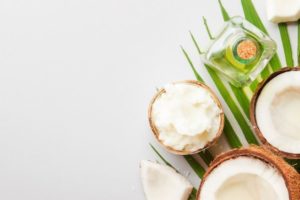The million-dollar question is, “What does CBD feel like?“
The answer: It depends.
Many compounding factors impact the feel and effects of CBD oil. CBD effects are subtle. In fact, they are more nuanced than alcohol or THC. This characteristic makes it challenging to describe the impact. Plus, everyone has a unique reaction, and reactions can vary by dosage, CBD quality, type, and more.
One common analogy used to describe what CBD feels like is that it’s like a small glass of wine or a massage. CBD users will feel positive and relaxed without being intoxicated or inhibited. These feelings may contribute to a lowered sense of anxiety or edginess.
Does CBD Oil Make You Feel Good?
CBD’s numerous benefits have a positive effect on your overall mood. With its stress-relieving, pain-easing, and health-boosting properties, CBD is capable of alleviating different conditions like chronic pain and anxiety disorders. With that said, this substance can potentially improve anyone’s constitution, not just people suffering from health conditions.
Depending on the type, dosage, and individual user in question, CBD can have widely varying effects. Every person reacts to CBD differently, with some feeling almost buzzed while others feel nothing at all. Scientists attribute this phenomenon to the differences in our Central Nervous Systems (CNS).
What Does the General CBD Feeling Depend On?
As we’ve mentioned, cannabinoids like CBD and THC affect a specific part of our CNS called the endocannabinoid system. It contains a network of receptors that cannabinoids can attach to and interact with. Studies have shown that the endocannabinoid system plays many vital roles in the body:
- Bone density
- Blood pressure
- Digestive function
- Immune activity
- Energy level
- Mood
- Stress
- Pain response
- Inflammation response
Cannabinoids aid this system to perform optimally and keep you healthy. CBD itself only has a weak interaction with the endocannabinoid system, but this doesn’t make it any less beneficial.
It slightly hampers this system’s receptors to help lessen THC’s intoxicating effects that many find undesirable. On top of this, it helps your body stay mentally and physically fit by activating specific receptors and enhancing your natural endocannabinoid production.
Since each cannabinoid can impart different benefits, what type of oil you use is important. CBD oil products are classified based on the substances they contain.
How Long Until You Feel the Effects of CBD?
How quickly you’ll feel CBD’s effects varies by the ingestion method of the CBD product you purchase but can range from 10 minutes to several hours. This timeframe encompasses the ingestion, digestion, and absorption of the cannabinoids into your bloodstream.
- Vaping is the fastest absorption method. It takes between 10 and 15 minutes to be effective.
- Sublingual drops are the second fastest option. The effects will be felt in 20 to 25 minutes.
- Oral ingestion’s timeframe varies the most, as it’s affected by digestive factors, but can take effect anywhere from 45 minutes to six hours.
- Topical application will affect the area treated within 25 to 45 minutes (pain relief/reduced inflammation)
The magnitude of the impact will depend on your medication, health, diet, and the potency of the CBD product used.
Your weight can change how quickly CBD affects you, as well. Larger individuals generally have slower metabolisms and more mass to dilute the CBD concentration. Therefore, a 200-pound individual would require a significantly larger dose than someone half their weight if they wanted to use CBD to treat insomnia.
Beneficial Effects of CBD
The explosion in CBDs’ popularity is far ahead of the scientific evidence. While many of the claims may be 100 percent valid, they don’t have the factual grounding from rigorous clinical testing. Still, these are some of the potential benefits of CBD.
Feel More Relaxed
The odds are if there is one reason to try CBD, it is for improved relaxation. According to research, 55 percent of CBD users take CBD in an attempt to relax, and there is some scientific evidence to back up this belief. Researchers speculate that it stems from the reaction of cannabinoids within the brain and nervous system. CBD works like a dimmer switch to gradually set the mind and body at ease.
Reduced Nausea
There is evidence that CBD, as well as THC, can limit feelings of nausea. The National Cancer Institute encourages the use of licensed and approved CBD treatments, such as dronabinol, for chemotherapy-associated nausea and vomiting. When researchers tested CBD for the treatment is nausea, they found it performed better than leading treatments.
Furthermore, CBD does not lead to statistically meaningful weight gain, even though patients report improved appetites. As a result, dronabinol has been used to stimulate appetite improvement in AIDS patients since the 1980s. The drug has also been used to treat appetite problems related to HIV and anorexia.
Better Mood
Laboratory studies suggest CBD can act as an antidepressant. One study involved Brazilian scientists injecting mice with one of three doses: CBD, a placebo, or imipramine, which is a prescription antidepressant. The scientists then placed mice in containers of water and forced them to tread water for six minutes.
This process measures the efficacy of antidepressants through what is known as the behavioral despair test. The goal is to see when the mice would give in to despair and stop swimming. The study concluded that “CBD induces antidepressant-like effects comparable to those of imipramine.”
Less Pain and Swelling
The most studied benefit of CBD is related to its inhibition of chronic pain. There is evidence showing that cannabinoids affect the brain to reduce pain sensation and inflammation. Similarly, several studies with human subjects found CBD and THC together can treat pain associated with multiple sclerosis and arthritis.
One study saw rats experience lowered pain response during surgery after CBD injections. Another study found rats that receive oral CBD tablets have less sciatic nerve pain and swelling. When it comes to humans, a 58-person trial found significant improvements in movement and pain tolerance after patients with rheumatoid arthritis took CBD.
Soothes Anxiety
One of the most popular CBD claims is that it reduces anxiety. This evidence is mostly anecdotal. One of the complicating factors is that marijuana-derived CBD can make users more susceptible to anxiety.
A 2010 study found that CBD can reduce symptoms associated with a social anxiety disorder. The researchers looked at patients’ brains to measure the differences in blood flow that correspond with anxiety. A 2011 study founded similar results. People who had CBD or the placebo had significantly lower SPIN (Social Phobia Inventory) scores than their counterparts.
Sharper Focus
CBD can improve focus levels because it allows more serotonin to the brain. Serotonin is an essential neurotransmitter that regulates mood and social behavior. In this case, the higher flow reduces levels of anxiety, which is known to hinder focus. Likewise, CBD can aid the attention of individuals with ADHD.
This process is why many people report being in a better mood after taking CBD. A 2017 study had participants take CBD over a period ranging from one month to a year. All 15 participants reported an improvement in their mood as a result of CBD treatment.
Improved Blood Sugar Levels
Many of the claims regarding CBD circle around the treatment of chronic pain and anxiety, but it may also have direct health benefits. One study looked at the correlation between CBD usage and complications from diabetes.
Researchers administered CBD to mice who had less blood flow to their brain, which is a common side effect of diabetes. The mice who received CBD ended up having lower cholesterol, hyperglycemia, and “bad fat levels.” They also saw an increase in insulin production.
Drawbacks of CBD
Like any drug, CBD has the potential to induce adverse side effects. While it is safe to consume, users may not get the intended reaction, especially if the CBD product is tainted or impure. Here are a couple of potential drawbacks.
Dry Mouth
CBD can impact the ability to produce saliva because of how it interacts with the endocannabinoid system in the body. This inhibition results in a feeling of dry mouth or “cottonmouth.” The condition is temporary and can cause mild discomfort.
Understanding dry mouth involves the function of the CB1 and CB2 receptors. They are responsible for producing saliva in the mouth, and a 2006 study showed that when CBD activates them, it can alter the amount of spit they produce and can contribute to feelings of thirst.
Complications with Other Drugs
Mixing CBD with other drugs can be problematic because it impacts enzyme production. Specifically, it inhibits the creation of cytochrome P450. Cytochrome P450 is a type of liver enzyme that breaks down toxins and drugs.
When consuming CBD, users will not be readily able to metabolize these products. As a result, other medications being taken may become less effective or lose their effectiveness sooner. If you have any questions or concerns about mixing CBD with current medicines, make sure to contact your physician.
Biphasic Characteristics
Biphasic drugs can have different effects on the body, depending on their concentration in the blood. CBD is a biphasic drug, in addition to caffeine, opiates, and caffeine. The complication is that CBD can have opposite effects depending on the concentration.
Low doses of CBD can contribute to a sense of alertness and elevated energy levels. Conversely, high levels of CBD can cause drowsiness or calmness. The biphasic characteristics of CBD can make it challenging to gauge the effects of the drug accurately.
When to Take CBD
Using CBD is a personal choice. While many people take it to treat pain or medical ailments, you don’t need these prerequisites. You can enjoy the benefits of CBD on a purely recreational level.
Deciding when to take CBD will depend on what you’re hoping to achieve. For example, people that use it as a sleeping aid should take an oral supplement a few hours before bed. Those individuals who want anxiety or pain reduction should take CBD one to three times per day with potential topical applications as a supplement. Contact your healthcare provider if you have any questions on how to get the best possible results with CBD use.
We hope this has answered all of your questions about CBD, including “what does CBD feel like?”
Why Can’t CBD Oil Get You High?
CBD itself can’t get you high. The cannabinoid responsible for that sensation is THC. It’s the primary psychoactive component found in cannabis plants.
CBD and THC each affect our nervous system differently by attaching themselves to different receptors. CBD, in general, causes the opposite of a high and promotes relaxation.
CBD oil manufacturers create their products from hemp, a type of cannabis plant with very low THC concentrations. By the government’s definition, hemp plants can’t have THC levels that exceed 0.3%, so even full-spectrum products won’t have enough THC to make you high. Broad-spectrum and isolate products are extracted even further to remove THC altogether.
Differences Between How THC and CBD Make You Feel
While CBD and THC both come from the same plant, these substances have varying effects on the body. CBD is a non-psychoactive substance, meaning it won’t make you high or alter your mental faculties significantly.
This quality makes CBD a better choice for those who prefer to stay functional and clear-headed. For this reason, CBD also has less strict government regulations, making products with the substance much easier to acquire.
CBD can:
- Ease pain
- Reduce inflammation and redness
- Treat depression
- Reduce anxiety
- Alleviate migraines
- Ease chronic various chronic conditions
On the other hand, THC is a psychoactive substance that will give you a “high.” It mimics the effects of the 2-AG and anandamide compounds in our body that provide a euphoric feeling.
THC can:
- Heighten your senses
- Alter your perception and thinking
- Reduce anxiety
- Cause euphoria
- Ease pain and muscle spasms
- Treat insomnia
- Improve your appetite
- Reduce Nausea
FAQs About What Does CBD Feel Like
Question: What does CBD oil feel like?
Answer: Many factors impact the feel of CBD. The effects are subtle and very nuanced. This makes it challenging to describe the impact. Although the effects can vary, CBD users tend to feel positive and relaxed without being intoxicated or inhibited.
Question: What are the common side effects of taking CBD oil?
Answer: Some of the common side effects are diarrhea, drowsiness, dry mouth, and an increase in appetite.
Question: How quickly would you feel the effects of CBD?
Answer: How quickly you’ll feel CBD’s effects varies by the ingestion method of the CBD product you purchase but can range from 10 minutes to several hours. This timeframe encompasses the ingestion, digestion, and absorption of the cannabinoids into your bloodstream.
Question: When to take CBD?
Answer: Using CBD is a personal choice. While many people take it as a way to treat pain or medical ailments, you don’t need these prerequisites. You can enjoy the benefits of CBD on a purely recreational level.
Question: Does CBD Oil Make You Feel Good?
Answer: CBD’s numerous benefits have a positive effect on your overall mood. With its stress-relieving, pain-easing, and health-boosting properties, CBD is capable of alleviating different conditions like chronic pain and anxiety disorders.
Question: What Does the General CBD Feeling Depend On?
Answer: cannabinoids like CBD and THC affect a specific part of our CNS called the endocannabinoid system. It contains a network of receptors that cannabinoids can attach to and interact with. Studies have shown that the endocannabinoid system plays many vital roles in the body’s bone density, immune activity, energy level, mood, stress, and many others.
Question: Why Can’t CBD Oil Get You High?
Answer: CBD itself can’t get you high. The cannabinoid responsible for that sensation is THC. It’s the primary psychoactive component found in cannabis plants. CBD and THC each affect our nervous system differently by attaching themselves to different receptors. CBD, in general, causes the opposite of a high and promotes relaxation.
Question: What Are The Differences Between How THC and CBD Make You Feel?
Answer: While CBD and THC both come from the same plant, these substances have varying effects on the body. CBD is a non-psychoactive substance, meaning it won’t make you high or alter your mental faculties significantly. On the other hand, THC is a psychoactive substance that will give you a “high.” It mimics the effects of the 2-AG and anandamide compounds in our body that provide a euphoric feeling.







